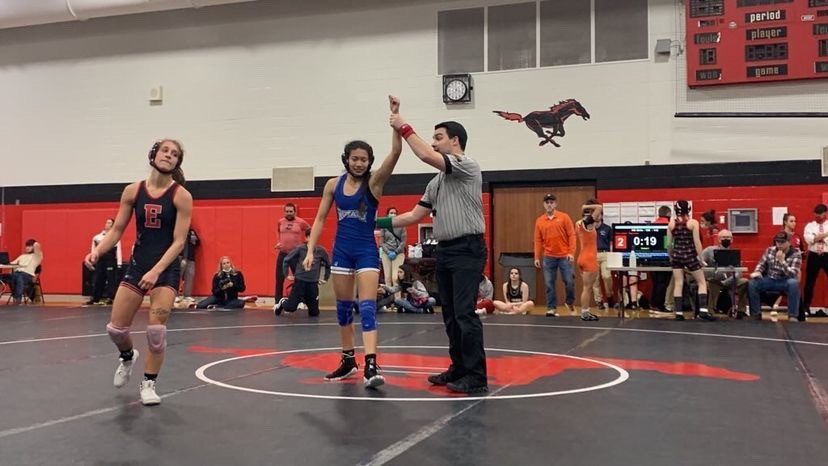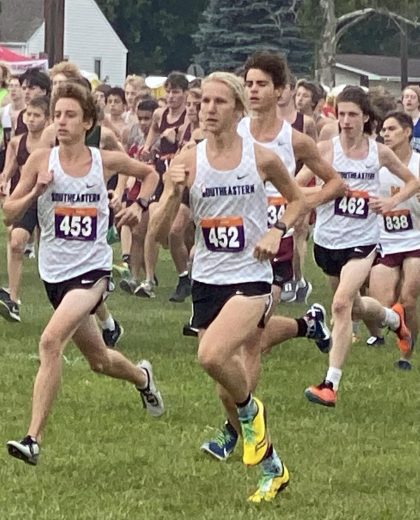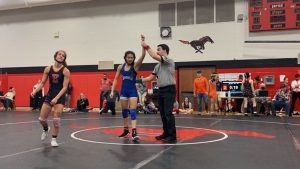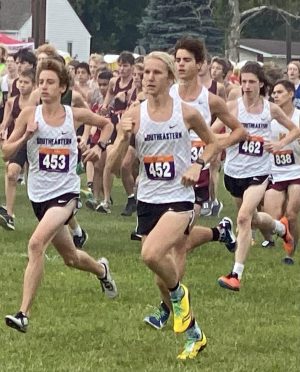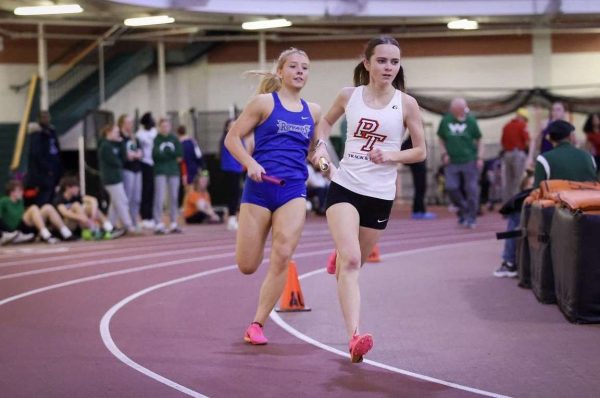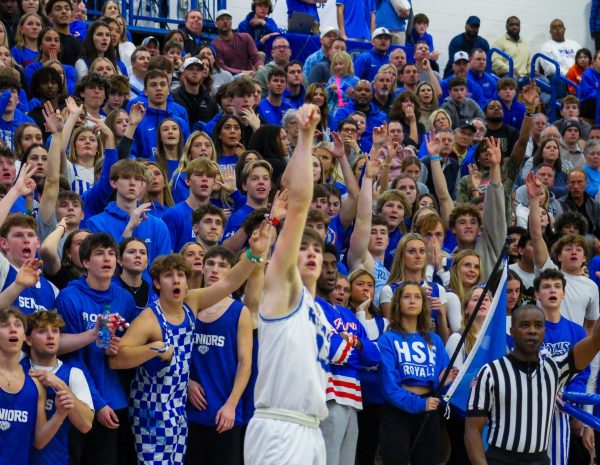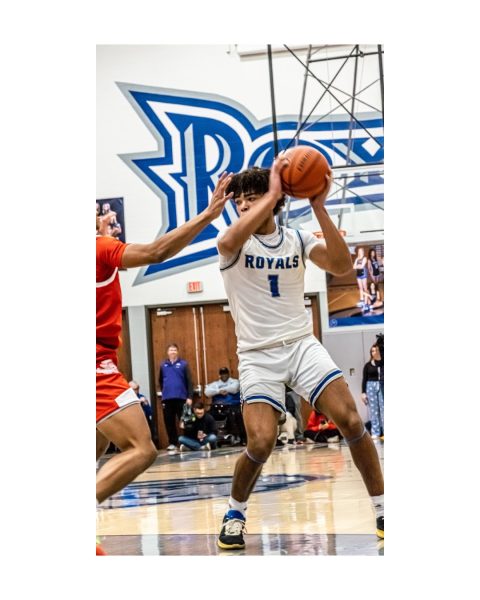Womens History In Sports
As we wrap Women’s History Month, it’s important that we take a look at all the trials and tribulations that women in sports have had to take to get to where we are today, and what students have to say.
March 29, 2022
In 1978, a school district in Sonoma California dedicated a week in March to recognize female figures. This short week started the creation of the month of March being deemed Women’s History Month in 1987. Since then, millions across the world have used the month of March to acknowledge the impact that Women have made and the legacies they have left and continue to leave.
Let’s backtrack for a second. In 1972, the United States Congress passed Title IX, also known as the Education Amendments of 1972. This states that “No person in the United States shall, on the basis of sex, but excluded from participation in, be denied the benefits of, or be subjected to discrimination under any education program or activity receiving federal financial assistance.” Although this passed 50 years ago, women have had to fight for equality in many ways, including in sports.
In 1967 Boston Marathon officials declared all women physiologically incapable of running 26 miles, the length of the Boston Marathon.
— Kathrine Switzer
While Title IX was a step in the right direction for the equality of Women in Sports, the fighting hasn’t ended. Women all over the world have been fighting for things such as equal pay, participation, or even just being taken seriously for hundreds of years. For example, the first modern Olympics took place in 1896, but it wasn’t until 94 years later in 1990 where the Olympics decided that all sports were required to include Women’s sports. This was only 31 years ago.
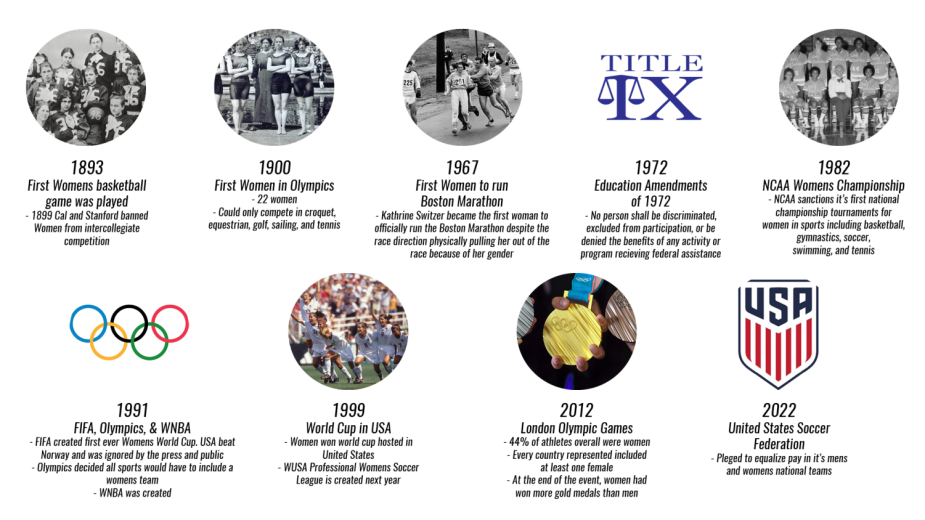
During women’s history month, it’s important to hear the stories and struggles of Female Athletes who have been affected by the sexism that comes surrounding sports. In 1967 Boston Marathon officials declared all women physiologically incapable of running 26 miles, the length of the Boston Marathon. That same year, Kathrine Switzer decided to challenge that. Despite being chased after and escaping the race director who tried to physically pull her out of the race all because she was a woman, became the first female to officially run the Boston Marathon.
Fighting alongside female athletes are women who are even interested in sports. I personally have been affected by the stigma of Women interested in sports. I grew up surrounded by a family who spent their Sundays cheering for the Indianapolis Colts and watching NFL games all day, that I grew a strong interest in the sport. Entering conversations about sports to me is a little nerve-racking, considering the fact that I usually get talked over, ignored, or not taken seriously. Of course, there are the occasional times where I am heard, which usually gets followed by the “You’re a girl you don’t know anything”, or the infamous “Name every person on their roster”, or little quizzes to test my knowledge. Now you may be reading this and laughing cause it’s stupid, and I agree. Why do I have to know every player to be considered a fan?
I’m certainly not the only one who’s experienced this. I asked female HSE Students and Athletes if they’ve experienced times where they felt discriminated against because of their gender surrounding the topic of sports. Here’s what they had to say:
Josie Neu (11), Southeastern Sports Network
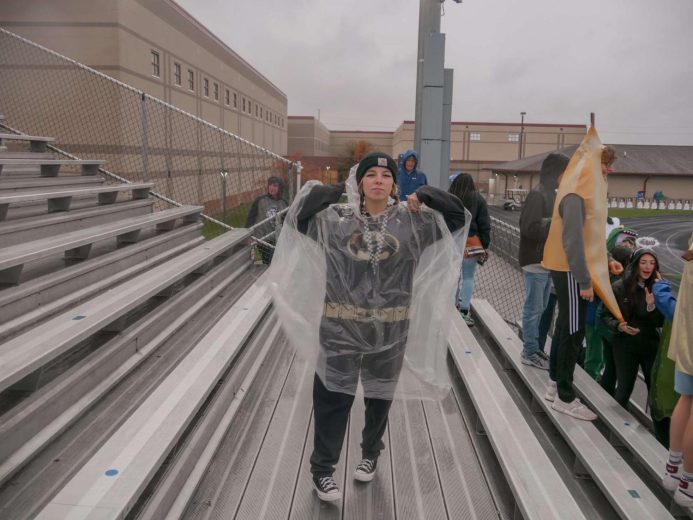
“People (men) don’t take me seriously when it comes to sports. I have 3 brothers that played every sport you can think of. I have grown up going to football and baseball games. I might not know EVERY detail about EVERY sport, but I know how the games work. The boys in my classes like to “mansplain” sports to not just me, but all women.”
Adyson Klein (12) HSE Football Manager
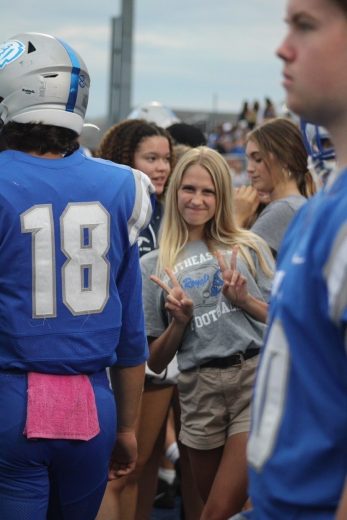
“I definitely have had experiences where I was looked down upon for being a female in the male football industry. My first-year football managing, I was doing my job on the sideline, and a guy who was involved for the other team made a side comment about how I was “too pretty” to be working hard on the field. “
Katie Lathrop (10), HSE Soccer
“Even though they are small remarks, the “you won’t be able to do that, you’re a girl” or “dang that’s surprising since you are a girl” are two terms that are often used when I am talking to a male about playing my sport. I feel like us women are doubted when we are just as capable as any other athlete, boy or girl.”
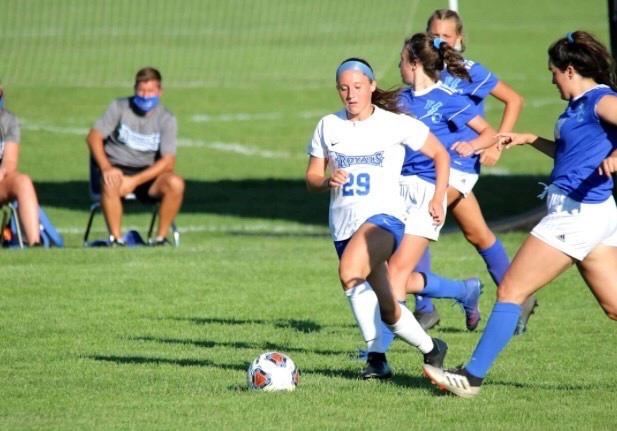
Female athletes at HSE are seeing small advances toward the recognition of Female Athletes here at HSE. The biggest being uniforms. “Our girl’s tennis team in the past has only gotten one uniform for the whole season playing 3 matches a week and the boys get 3.” said junior tennis player, Anika Pulliam. “Not until just this year after fighting for more uniforms and having a fundraiser to pay for more we just now got only 1 more tank top.”
While these are small victories, there’s always more to be done. Women have been fighting for equality for years and it doesn’t seem to be coming any time soon. Women will have to continue to fight for things such as equal pay, equal advertisement, and equal coverage for many more years.
To all Women in sports who are reading this, don’t let anyone, including the media, get in the way of what you do. Continue to fight and prove everyone wrong. Happy Women’s History Month.
And to all HSE Students, continue to show support for our female athletic teams.
Show out, be loud, and be proud to be a Royal.



